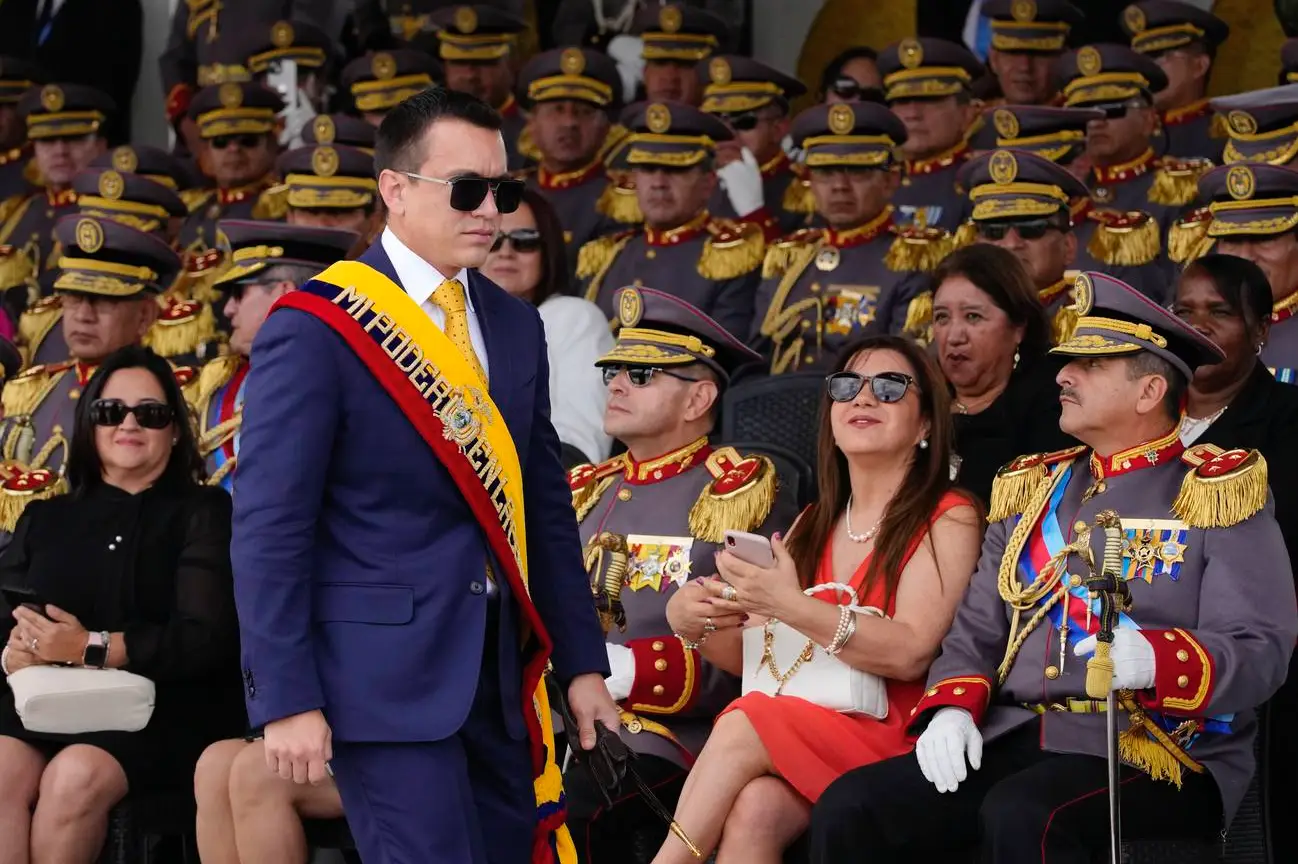Democracy no longer dies with tanks in the streets, but at the hands of elected officials or captured institutions. What used to be abrupt ruptures now manifests itself as a silent and progressive erosion: a “slow death,” as various authors describe the global democratic drift. Thus, from within the democratic system, the republican pact is undermined, institutional checks and balances are mined, freedoms are suppressed, and opponents are persecuted, all under the guise of legality.
The recent elections in Ecuador, in which Daniel Noboa was re-elected with 55.6% of the vote against Luisa González (44.4%) of Revolución Ciudadana, illustrate this drift. Specifically, the organization of the elections showed that the co-opting of electoral arbiters by one of the candidates makes fair competition for access to power fictitious. The problem is even greater when that candidate is also the president, heir to one of the country’s largest fortunes, and head of the armed forces in the midst of a declared “internal war” against drug trafficking. Noboa used all these prerogatives in his campaign. Under such conditions, instead of operating as the high point of democracy, the elections only ratify the previous power of abusive leaders.
Six elements illustrate the distortion of democratic competition in Ecuador.
First, although the staff of the National Electoral Council (CNE) has been highly regarded for its technical capabilities—between 2021 and 2024, the institution conducted four national elections—state deinstitutionalization and austerity policies in place since 2018 have undermined its effectiveness and autonomy.
At the same time, in an environment of intense polarization, the CNE leadership—five councilors—ceased to act as impartial arbiters and aligned themselves with the government. Noboa’s arrival to the presidency in 2023 accelerated this trend. His order to storm the Mexican Embassy in April 2024 was a show of force that preceded the alignment of all institutions. During the election, the CNE’s co-optation was revealed when it failed to require the president to take mandatory leave to seek re-election, as required by the Democracy Code and the Constitution. During the campaign, the agency was also complacent in the face of the ruling party’s transgressions: the use of public resources for proselytizing purposes, the cancellation of migrant voting in Venezuela, and ad hoc reforms such as the ban on the use of cell phones during voting, based on a secret police report.
Within this framework of institutional capture, other agencies such as the Electoral Court and the Attorney General’s Office have been used to intimidate or remove opposition actors from the electoral process. The early disqualification of Jan Topic—Noboa’s main contender on the right—was paradigmatic in this regard.
Fourth, the government moved nearly $518 million in the weeks leading up to the runoff election. It did so unexpectedly by launching 14 bonds targeted at different segments of the electorate. According to various testimonies, public officials hinted that the aid would continue if the president were reelected. The economic conditioning of the vote, an old clientelist mechanism, was explicit.
At the same time, public and private media outlets aligned themselves with the president’s campaign: 65% of the information monitored was official propaganda, according to the European Union Election Observation Mission. This reveals a misuse of public resources and a disproportionate media advantage. The OAS also expressed concern about the media coverage of security operations. Specifically, Erik Prince, former CEO of Blackwater—a convicted mercenary hired by Noboa—publicly criticized the opposition candidate, taking advantage of his media presence.
Finally, demonstrating that the “internal war” is not just rhetoric, the Armed Forces intervened in the electoral process. Arrogating to themselves regulatory functions, they supported Noboa’s decision not to request leave. The OAS also denounced politically charged military communiqués—calls to “defend freedom” as “guardians of the homeland”—and issued warnings about the existence of parallel electoral control in their hands.
Military power expanded with the decree of “internal armed conflict” in January 2024. An almost permanent state of emergency—35 of the 40 months of Noboa’s government, until April 2025, were spent under this condition—has since framed the militarization of security. Governance is now inseparable from Noboa’s image as a strongman, his agreement with the Armed Forces, and a policy of fear that demobilizes society. Civilian controls over the military have been diluted, and human rights violations in marginalized and racialized territories have become normalized.
At the same time, opponents of various stripes are often arbitrarily associated with the mafia or linked to terrorist actions. The Citizen Revolution, the indigenous movement, and anti-mining activists are favorite targets of such operations. Pluralism, popular dissent, and the rule of law are being violated. One day before the runoff election, the executive branch declared another state of emergency. Intimidating gestures by those in power permeated the electoral process from start to finish: can a frightened society truly vote freely?
In such an environment, everything indicates that Ecuador’s autocratic drift will be reinforced in the coming years. In fact, even before taking office, Noboa sent the National Assembly—also under his control—an urgent “economic” bill that, under the pretext of combating criminal economies, aims to reinforce militarization and create a framework of impunity for state agents who violate human rights.
Various civil society organizations are already talking about “state terrorism,” while others warn of the country’s “Bukelization.” Among other issues, various reforms are proposed to authorize searches, seizures, and arrests without a prior court order; mandatory preventive detention; expedited criminal proceedings; pardons for members of the security forces; weakening of civilian controls over the armed forces; and special presidential powers to take economic, military, and repressive measures without democratic checks and balances.
Thus, buoyed by the broad electoral support obtained in elections held in an unequal and opaque structural context, Noboa is using the supposed fight against insecurity as the fastest way to legalize an authoritarian regime and stifle any legal guarantees against the dirty war already underway in the country.
*Machine translation proofread by Janaína da Silva.














